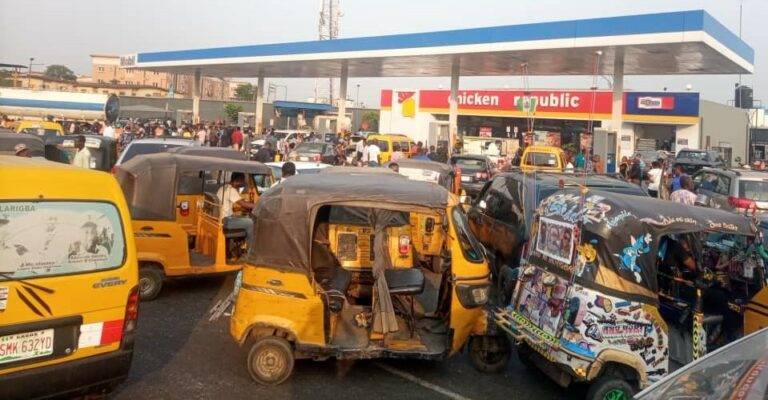The Independent Petroleum Marketers Association of Nigeria (IPMAN) has predicted that the current petrol scarcity plaguing several states in Nigeria may persist for at least two weeks before normalization. Meanwhile, the Nigerian National Petroleum Company Limited (NNPCL) has assured the public of sufficient stock availability despite the ongoing fuel scarcity.
According to Chinedu Ukadike, the Public Relations Officer of IPMAN, the scarcity is a result of importation bottlenecks, slow license renewals by the Nigerian Midstream and Downstream Petroleum Regulatory Authority (NMDPRA), and maintenance activities at European refineries, which have hindered product sourcing. Only a fraction of marketers have renewed their licenses, further exacerbating the supply shortage.
Ukadike disclosed that NNPC has attributed the supply challenges to logistics and vessel issues, but reassured that improvements are expected as vessels arrive. He emphasized the importance of restoring the 30-day supply sufficiency to stabilize the market, a process that could take two to three months.
On the licensing issue, Ukadike urged NNPC and NMDPRA to extend the renewal deadline and expedite license issuance to eligible marketers to alleviate scarcity.
Responding to the crisis, NNPC Ltd’s Chief Corporate Communications Officer, Olufemi Soneye, affirmed that logistics challenges causing the scarcity have been resolved, and there are sufficient petrol stocks in the country. He urged Nigerians to refrain from panic buying, emphasizing that fuel prices remain unchanged.
Echoing similar sentiments, Clement Isong, CEO/Executive Secretary of the Major Energy Marketers Association of Nigeria (MEMAN), expressed optimism that queues would clear soon as logistics issues are resolved and marketers work tirelessly to meet demand.
However, the scarcity has significantly impacted daily life and business operations nationwide. Long queues, closed filling stations, and inflated black market prices have become common sights, disrupting transportation and economic activities.
In Lagos, motorists faced lengthy queues and exorbitant prices, with some major marketers selling petrol above regulated prices. Similar situations were observed in states like Kano, Kaduna, and Sokoto, where petrol prices skyrocketed on the black market due to station closures and persistent scarcity.
Transport operators lamented the adverse effects on their businesses, including increased waiting times for fuel and decreased patronage, calling on the government to address the situation promptly.

